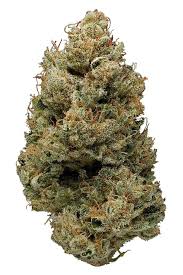Is Weed Bad For You, The question “Is weed bad for you?” has sparked significant debate over the years, as cannabis use becomes increasingly common and legalization spreads across the globe. Marijuana, often referred to as weed, has been used both recreationally and medicinally for centuries. However, despite its widespread use, there remains ongoing discussion about its potential health risks and benefits. This article explores the effects of marijuana on health, looking at both the potential downsides and any possible therapeutic uses.
Potential Negative Health Effects of Weed
- Mental Health Risks
One of the most significant concerns about marijuana use is its potential impact on mental health. Research has shown that regular and heavy use, especially during adolescence, can increase the risk of developing mental health disorders, including anxiety, depression, and even psychosis. In particular, marijuana use has been linked to an increased risk of schizophrenia in people who are genetically predisposed to the condition. Additionally, heavy marijuana use can contribute to cognitive impairments, such as reduced memory and concentration, which can persist even after the high has worn off. - Respiratory Issues
Smoking marijuana can lead to respiratory problems, similar to those caused by tobacco smoking. Inhaling any kind of smoke into the lungs can irritate the respiratory tract and increase the risk of bronchitis, chronic coughing, and other lung issues. While marijuana smoke contains many of the same harmful chemicals as tobacco smoke, the full extent of its long-term impact on the lungs is still being studied. It’s also worth noting that alternative methods of consumption, such as vaping or edibles, may reduce some of these risks, though they come with their own set of concerns. - Addiction and Dependency
Although marijuana is often considered less addictive than substances like alcohol or opioids, it is possible to develop a dependency on it. The condition known as Cannabis Use Disorder (CUD) affects a small percentage of users, leading to cravings, withdrawal symptoms, and difficulty controlling use. People who start using marijuana at a young age or who use it heavily are at higher risk of developing a dependency. - Impaired Driving and Accidents
Marijuana impairs coordination, reaction time, and judgment, which can significantly increase the risk of accidents, particularly when driving. Unlike alcohol, marijuana’s effects can be harder to measure with a breathalyzer, making it more challenging for law enforcement to assess impairment accurately. Driving under the influence of marijuana is dangerous and illegal in many regions, emphasizing the importance of being responsible when consuming the substance.
Potential Health Benefits of Weed
- Pain Relief
One of the most well-known medicinal uses of marijuana is for pain management. Cannabinoids, the active compounds in marijuana, interact with the body’s endocannabinoid system to help reduce chronic pain, making it an alternative to opioids for some patients. This has led to the legalization of medical marijuana in many places for conditions such as cancer pain, neuropathic pain, and multiple sclerosis. - Reduction of Anxiety and Insomnia
Some users find that marijuana helps them relax and reduces symptoms of anxiety or insomnia. However, these effects can vary widely between individuals. While low doses of THC (tetrahydrocannabinol, the psychoactive compound in marijuana) may help some people feel more relaxed, higher doses can exacerbate anxiety in others. Similarly, while marijuana can promote sleep in the short term, its long-term impact on sleep quality is still debated. - Treatment for Seizures
In recent years, cannabis has gained attention for its potential in treating epilepsy and seizure disorders. CBD (cannabidiol), a non-psychoactive component of cannabis, has been found to reduce the frequency and severity of seizures in some patients, particularly those with treatment-resistant forms of epilepsy, such as Dravet syndrome. The FDA-approved drug Epidiolex is a CBD-based treatment for seizures, showcasing the therapeutic potential of cannabis in this area.
Weighing the Pros and Cons
The question “Is weed bad for you?” does not have a straightforward answer. The effects of marijuana on health can vary significantly depending on factors like age, frequency of use, the method of consumption, and individual health conditions. While marijuana may offer benefits, particularly in the context of pain relief, anxiety reduction, and seizure treatment, it also carries potential risks, particularly regarding mental health, respiratory issues, and the possibility of addiction.
For those considering marijuana use, it is essential to approach it with an understanding of both the potential benefits and risks. Consulting with a healthcare professional, especially if you have a history of mental health issues or are taking other medications, is crucial for making informed decisions.
As legalization and research continue to evolve, our understanding of marijuana’s effects will become clearer. For now, the key is to use it responsibly, stay informed about the latest research, and weigh the pros and cons based on your own health and circumstances.
You Might Also Like These:



